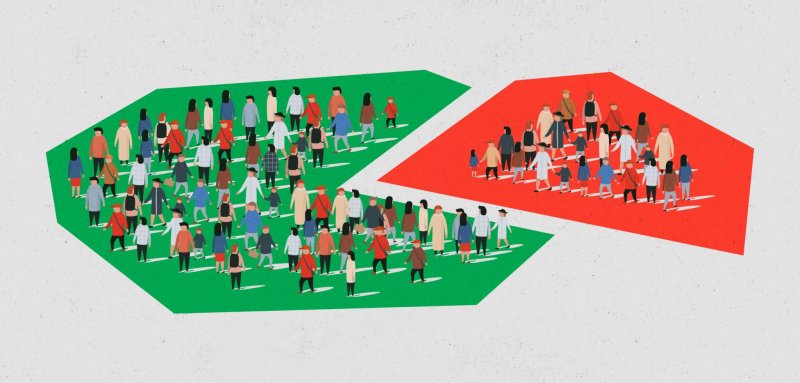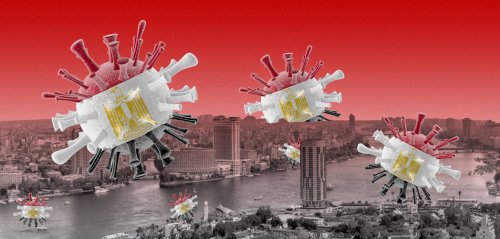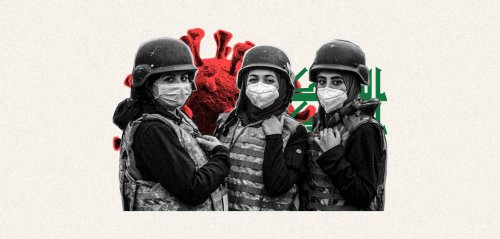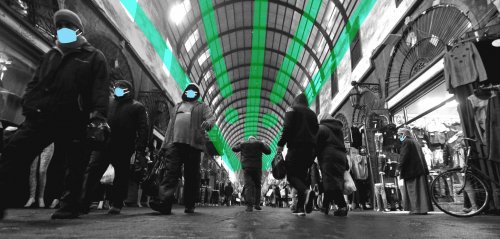Countries around the world are stepping up their efforts to combat Covid19. Strict measures have been put in place and most cities across the globe are in complete lockdown. A lot of parallels have been drawn recently between the effects of the coronavirus outbreak on the economy and that of the great depression in 1929 with devastating economic implications lasting longer than expected once the outbreak has been contained.
When big shocks come along, historians, economists and journalists amongst others tend to look for similar historical parallels and lessons to apply.
Past trends suggest that in certain contexts a comeback at the end of an economic shock is much quicker than expected. An example of that is Hurricane Katrina that took place in Louisiana in 2005 whose economy was at the time performing similarly close to the US economy in early 2020. Economies recover faster than predicted, where in this case unemployment in the first month had more than doubled from 4 to 11 percent.The encouraging news though is that soon after the hurricane had receded, unemployment fell down back to previous levels at an unexpectedly fast rate. However, the unpredictability associated with months of complete shutdown in the case of coronavirus makes this epidemic far from calculable with far reaching economic repercussions to be felt for a long time.
Who should Lebanon look up to? Is it failing states like ours that we need to learn from? Shall we look at Iran whose interventions in Lebanon, Yemen and Syria have cost more lives than the outbreak?
This brings us to the Lebanese government’s efforts in combating the epidemic. The government has announced a few aid packages in response to Coronavirus, but these packages lack the proper policy measures to keep the economy afloat. Noone is in a position to dispute the urgency of the need to abide by the WHO recommendations if we were to contain the outbreak and save lives. However, in the absence of a state that upholds its obligations towards its citizens, the virus is going to discriminate against the vast majority who are suffering the most as a result of this lockdown.
Governments around the world have announced stimulus and aid packages to sustain their economies. Their main concern is protecting the jobs of those at risk of being laid off as a result of the outbreak while looking after low income families and the unemployed. In Lebanon, while the government imposes a lockdown, it fails to propose an alternative plan or a backstop that would save scores of families from going into starvation or industries from going bankrupt. It is worth noting that the economy has come to a complete halt long before the Coronavirus outbreak
as Lebanon defaulted on its debt for the first time as it faces its worst financial crisis caused by years of economic mismanagement. Despite all that, it is one thing for a state to ask its citizens to be locked up indefinitely while it provides them with their basic needs and necessities to sustain themselves, and it’s a totally different thing when a government asks the same thing of its citizens without providing a safety net to fall back on; and here lies the tragedy.
The aid package announced by the government included lowering interest rates and allowing borrowing for companies wishing to retain its workforce at 0 percent, but that does not even compare to other much more needed measures such as sharing the costs of employees with companies if they keep them on their payroll, a step that would safeguard thousands of jobs and lives while preventing the total collapse of businesses that are keeping the economy afloat. The outbreak of the virus has also exposed the state which for so long has been absent and inept not as a result of a lack of resources but due to ingrained state corruption and the absence of accountability mechanisms. Instead what you see is political parties shifting the blame and indulging in an accusation spree where an attack on one entity is regarded as an attack on the whole sect in a continuous failing attempt at building a nation state separate from religion, sect or foreign affiliations.
The health of Lebanon’s democracy is undergoing another test, so instead of indulging in self-pity and blaming what we have come to on almost everything except ourselves, it's time we faced the reality that we, the citizens who voted in these officials.
In the unique case of Lebanon,
the Coronavirus outbreak is described as a crisis within a crisis. The bruised state was stripped open in the way different fundraising activities were set up by different parties and sects to help those in need. In the absence of a functioning state, other actors fill up the void, which is risky as citizens lose faith in their state and become more loyal to anyone offering a safety net. This places vulnerable populations at a higher risk of exploitation for various ends, not least for political agendas. TV stations, celebrities, politicians and ordinary citizens have come together in an effort to raise money for the crisis. Vulnerable persons, elder people, and those living under poverty line who have been ignored by their state for so long, even when the economy has been up and running, are being looked after by their fellow citizens in a remarkable show of national unity. People coming together in times of need is exemplary. However, absent a functioning state it runs the risk of becoming exploitative. In the absence of a strong states, citizens in need forge deep relations with entities or individuals who would take up the role of the state in the provision of basic needs and services, thus destabilizing national identity and the supposedly inherent relationship between the citizen and their state versus the citizen and the sub-state.
They say diseases, natural disasters and deadly outbreaks do not discriminate. However, people with little or no resources disproportionately bear the brunt. It is absolutely inconceivable to look at the UK government’s efforts in that regard, which
announced a scheme covering 80 percent of wages of those not working during the coronavirus outbreak, including freelancers and self-employed, or to ponder the unprecedented step of paying grants covering 80 percent of salaries of workers in an effort to encourage companies to keep them on the payroll. But who should Lebanon look up to? Is it failing states like ours that we need to learn from? Shall we look at Iran whose interventions in Lebanon, Yemen and Syria have cost more lives than the outbreak probably would and yet
it pleads with the IMF for medical aid, or is it Venezuela which despite being in a standoff with the rest of the world with the exception of a handful of countries such as Cuba, China, Russia and Iran is also
asking the IMF for help, which was of course answered by “request denied”.
It is about time we set our standards as high as we possibly can, follow in the footsteps of states that put the welfare of its citizens above all else and see where that might take us. The health of Lebanon’s democracy is undergoing yet another test, so instead of indulging in self-pity and blaming what we have come to on almost everything and everyone, including God’s vengeance, except ourselves, it is time we stood up to the reality that this disaster is of our own making, we are the citizens who voted in these officials.






